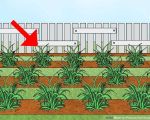Understanding the Benefits of Mulching Your Lawn
Mulching your lawn is a simple yet powerful way to improve its health and appearance. As a passionate gardener, I have experienced firsthand how beneficial mulching can be for your lawn. Whether you're aiming for a lush green lawn or better soil quality, mulching can help achieve these goals efficiently. In this article, I’ll walk you through the top benefits of mulching and how it can transform your lawn care routine.
1. Improved Soil Fertility
One of the key benefits of mulching your lawn is the enhancement of soil fertility. As organic mulch decomposes, it adds valuable nutrients back into the soil. This helps enrich the soil structure, allowing the grass roots to access more nutrients and grow stronger. Mulch such as shredded leaves, grass clippings, or compost, all naturally break down, adding essential minerals like nitrogen, phosphorus, and potassium to the soil. Over time, this improves the health and vitality of your lawn.
2. Moisture Retention
Water conservation is crucial for maintaining a healthy lawn, especially during hot, dry months. Mulch acts as a protective barrier that helps retain moisture in the soil. By covering the soil with a layer of mulch, you reduce the amount of water that evaporates, ensuring your lawn remains hydrated longer. This not only helps in maintaining the lushness of your grass but also reduces the frequency of watering, making it an eco-friendly choice for your garden.
3. Weed Control
Weeds are a common problem in many lawns, and they compete with grass for nutrients and water. Mulching serves as a natural weed suppressant by blocking sunlight, which inhibits the growth of weeds. When applied properly, mulch can reduce the need for chemical herbicides, keeping your lawn healthier and safer for children and pets. By preventing weed growth, mulching also promotes a cleaner, more manicured look for your lawn.
4. Temperature Regulation
Temperature fluctuations can be harsh on your lawn, especially in regions that experience extreme heat or cold. Mulch helps regulate soil temperature by insulating the ground. In the summer, it keeps the soil cooler, reducing heat stress on the roots. During winter, mulch provides a layer of protection from freezing temperatures, helping to protect your lawn from frost damage. This temperature stability promotes healthier grass and ensures your lawn is prepared for all seasons.
5. Aesthetic Appeal
Beyond the practical benefits, mulching your lawn can greatly enhance its visual appeal. A fresh layer of mulch adds a polished, tidy look to your garden, making your lawn appear well-maintained. Whether you use dark mulch for a dramatic contrast or light-colored mulch to brighten your lawn, the aesthetic enhancement of your landscape is undeniable. It's an easy way to elevate the overall look of your lawn without a lot of effort.
6. Reduction in Lawn Maintenance
Mulching reduces the amount of maintenance required for your lawn. With its ability to retain moisture, suppress weeds, and enrich the soil, mulching means less frequent watering, fewer weeding sessions, and reduced dependence on chemical fertilizers. This makes mulching a cost-effective and low-maintenance way to ensure your lawn stays healthy throughout the year. Plus, the time saved on upkeep can be better spent enjoying your outdoor space.
7. Enhances Lawn’s Resilience to Stress
Lawns can become stressed due to various environmental factors like drought, extreme heat, and heavy foot traffic. Mulch creates a cushion that protects the grass and helps it recover from stress. Whether your lawn is in a high-traffic area or is exposed to fluctuating weather conditions, mulching acts as a protective layer, promoting recovery and maintaining a lush appearance even under challenging circumstances.
Choosing the Right Mulch for Your Lawn
Not all mulches are created equal. The type of mulch you choose can have a significant impact on the benefits you reap. Organic mulches, such as wood chips, bark, straw, and grass clippings, are ideal for most lawns. These types decompose naturally and improve the soil structure over time. On the other hand, inorganic mulches like rubber or gravel may be more durable but don't contribute as much to soil health.
How Much Mulch Should You Apply?
The key to effective mulching is applying the right amount. For most lawns, a layer of mulch between 2 and 3 inches is ideal. Too little mulch won’t offer sufficient benefits, while too much can suffocate your grass and prevent water from penetrating the soil. When spreading mulch, ensure it is evenly distributed and not piled up against the base of trees or plants, as this can lead to rot.
By mulching your lawn, you not only improve its overall health but also make your gardening efforts more sustainable and low-maintenance. As someone who’s been mulching my lawn for years, I can confidently say that it’s one of the best investments I’ve made for my garden’s long-term health.
SEO Title: Benefits of Mulching Your Lawn for Healthier, Lush Grass SEO Keywords: mulching benefits, lawn care, soil fertility, moisture retention, weed control, lawn maintenance, temperature regulation, aesthetic appeal SEO Description: Discover the many benefits of mulching your lawn. From improved soil health to moisture retention and weed control, learn how mulching can enhance the beauty and sustainability of your lawn.







